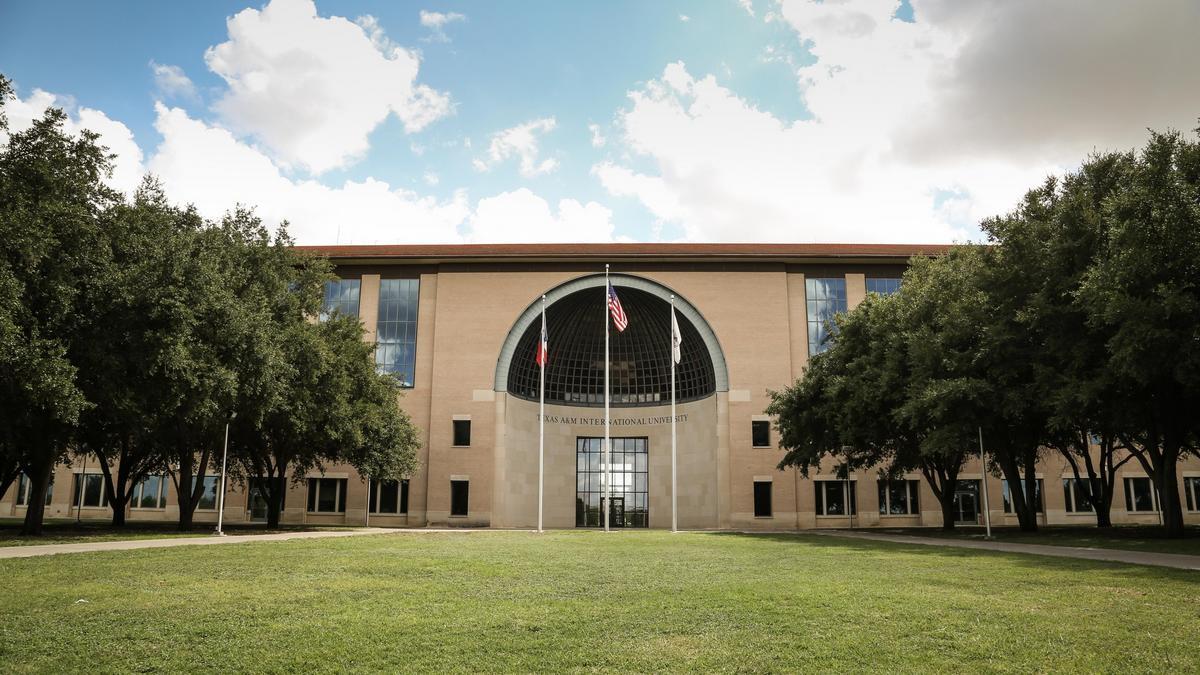In a message from Texas A&M International University's (TAMIU) TIDE committee that focuses on diversity, equity and inclusion, Dr. Adam Kozaczka said the university is reengaging efforts to implement DEI on campus.
Critics of DEI in higher education question the motives and results of using DEI standards when hiring or during enrollment. Texas A&M International University, under the Texas A&M System, has adopted policies and an Office of Diversity, Equity and Inclusion (DEI). TAMIU’s Inclusion, Diversity and Equity Committee (TIDE) was put in place by the Office of the Provost and Vice President for Academic Affairs.
The committee “is further committed to advancing the cause of these principles by pursuing cross-cultural exploration, intercultural relationship building, and mutual learning and growth through events and activities that celebrate the unity of cultures in a democratic environment,” TIDE’s webpage said.
TIDE serves as a resource for faculty, staff and students in all things related to DEI.
"Though TAMIU has had a diversity committee in past years, the challenges posed by current events and global changes in 2020 have moved the university to reinforce its commitment to diversity and inclusion," Kozaczka, assistant professor of Humanities at Texas A&M, said in a statement.
TIDE’s strategies for implementing DEI include promoting cultural-diverse events on campus, organizing workshops for “learning cultural norms, belief systems, practices,” and aligning TAMIU’s mission to the values of DEI on social media and the main website. The TIDE Committee members are made up of current faculty members and two students.
The formation of the TIDE Committee is the result of Provost Dr. Thomas Mitchell, who after the events of spring 2020 reinforced TAMIU’s commitment to DEI.
“TIDE encourages the TAMIU community to address issues in diversity and inclusion not only in the abstract sense of issues that influence Texas, the USA, and the world at large, but in the practical sense of day-to-day operations and climate here in our campus community,” Kozaczka said.
The Committee on DEI for the Texas A&M University System released a report that found Texas A&M Universities were falling short on hiring a more diverse faculty from 2015-2019. The report noted a “lack of accountability” and offered the Aces (Accountability, Climate, Equity and Scholarship) Fellows Program, described as a “faculty pipeline initiative (that) promotes the research, teaching and scholarship of early career scholars who embrace the belief that diversity is an indispensable component of academic excellence.”
“As an institution, Texas A&M has added a mandatory question to faculty and staff applications regarding ways they will work to value DEI for applicants,” the report added. “A question for reference checks now addresses this question as well. These are small steps, but more is needed to help ensure that DEI is valued on the campus, particularly when it comes to hiring faculty and staff.”
Those in favor of implementing DEI practices are excited for the inclusiveness and open opportunities it provides, especially for minority communities; an American Enterprise Institute (AEI) study said. Those who oppose requiring DEI in the hiring process and workplace view the tactic as adhering to what is politically correct. Critics argue there has been a flip in hiring from quality and scholarship to now purely based on a candidate’s knowledge and experience with DEI. Critics also suggest DEI is becoming much more important than basic qualifications at most universities. This leads to ideological conformity where candidates or students are removed from the pool of applicants purely for displaying poor DEI statements or not having the correct DEI experience.
In a data collection study done by AEI, it was questioned whether the strategic diversity plans put in place by universities attain their goals. Seeing no evidence on the betterment of campus climate or research productivity, they concludes requiring DEI in the hiring process has instead a fundamentally political end.

